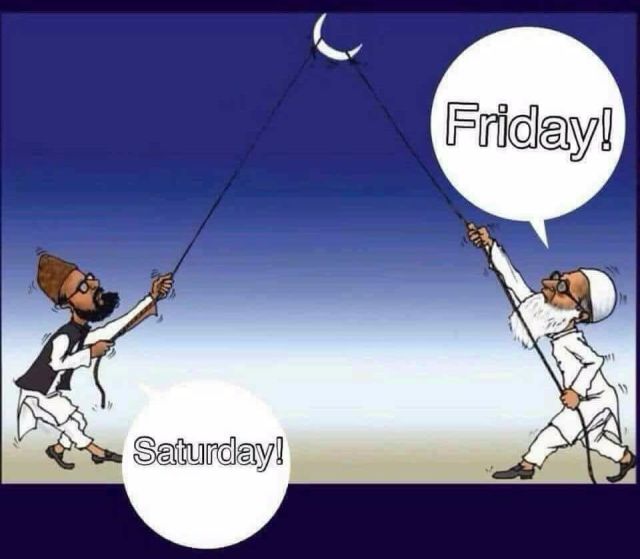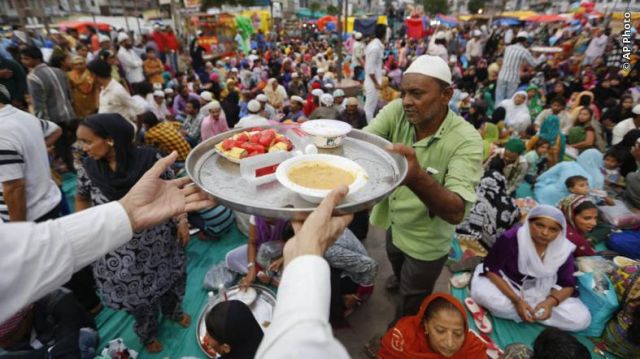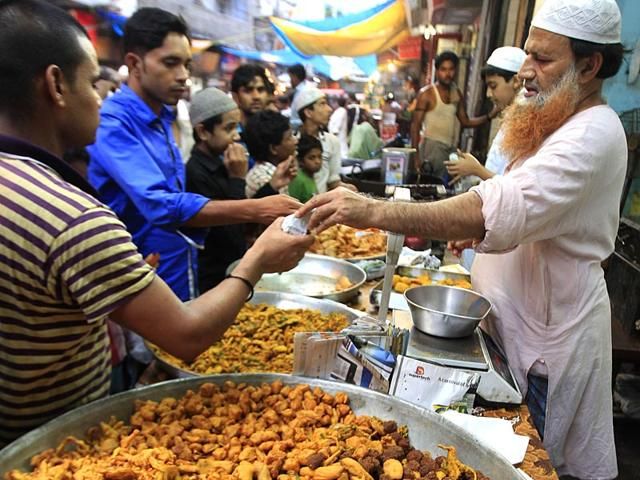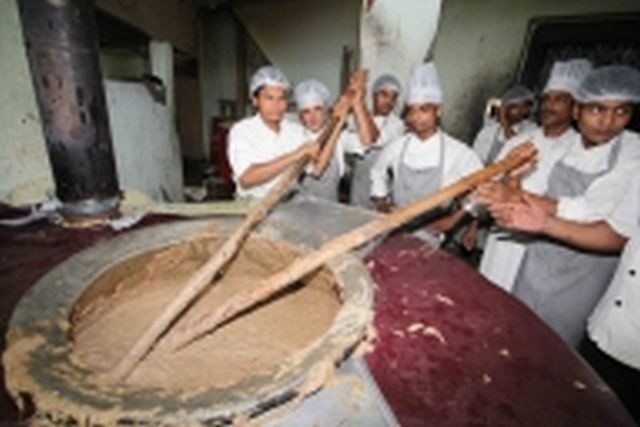
by admin | May 25, 2021 | World

United States President Joseph R.Biden
Jill and I send our warmest greetings and best wishes to Muslim communities in the United States and around the world. Ramadan Kareem.
As many of our fellow Americans begin fasting tomorrow, we are reminded of how difficult this year has been. In this pandemic, friends and loved ones cannot yet gather together in celebration and congregation, and far too many families will sit down for iftar with loved ones missing.
Yet, our Muslim communities begin the month of revelation with renewed hope. Many will focus on increasing their consciousness of the presence of God in their lives, reaffirming their commitment to the service of others that their faith compels, and expressing gratitude for the blessings they enjoy-health, well-being, and life itself.
Muslim Americans have enriched our country since our founding. They are as diverse and vibrant as the America they have helped build. Today, Muslims are leading in our efforts to fight COVID-19, playing a pioneering role in vaccine development and serving as frontline health care workers. They are creating jobs as entrepreneurs and business owners, risking their lives as first responders, teaching in our schools, serving as dedicated public servants across the nation, and playing a leading role in our ongoing struggle for racial equity and social justice.
But still, Muslim Americans continue to be targeted by bullying, bigotry, and hate crimes. This prejudice and these attacks are wrong. They are unacceptable. And they must stop. No one in America should ever live in fear of expressing his or her faith. And my administration will work tirelessly to protect the rights and safety of all people.
On my first day as President, I was proud to end the shameful Muslim travel ban, and I will continue to stand up for human rights everywhere, including for Uyghurs in China, Rohingya in Burma, and Muslim communities all over the world.
As we remember those who we have lost since last Ramadan, we are hopeful for brighter days ahead. The Holy Qur’an reminds us that “God is the light of the heavens and earth,” who leads us out of darkness to the light. Although our White House festivities will be held virtually this Ramadan, Jill and I look forward to resuming the traditional White House Eid celebration in person next year, inshallah. We wish your families an inspiring and rewarding month.

by admin | May 25, 2021 | Opinions
 We are not sure if Eid-ul Fitr is declared in Delhi for Friday, 15 June, following 29 days of Ramadhan, will it be for Mumbai too because then they will have observed only 28 days of Ramadhan and in the lunar calendar a complete month is either of 29 or 30 days only?
We are not sure if Eid-ul Fitr is declared in Delhi for Friday, 15 June, following 29 days of Ramadhan, will it be for Mumbai too because then they will have observed only 28 days of Ramadhan and in the lunar calendar a complete month is either of 29 or 30 days only?
By M. Burhanuddin Qasmi,
From the early days of Islam, Hilal, Crescent in English, is very significant in all Muslims’ social and religious functioning across the globe. The Islamic or Hijrah calendar, which began from the day when Prophet Mohammad (saws) first set for Hijrah (migration journey) with his friend Abu Bakr from Makkah to Madinah on 12/13 September 622 CE, is officially followed by most Muslim countries in the world. This is lunar calendar and revolves around the moon sighting in each month. Similarly all major Muslim festivals and worship like the beginning of the month of Ramadhan, Eidul Fitr, Hajj and Eidul Adha are actually based on moon sighting around the world.
The 57 OIC member states or Muslim countries, including 22 Arab nations, have developed some sorts of moon sighting mechanism. Among them are Saudi Arabia, Pakistan and Malaysia, which are equipped with advanced technological means and both astronomical and religious resources to deal with one of the very important issues of Muslims – the new moon or the crescent which impacts their day-to-day business as all as religious practices. Majority of independent gulf countries, though place their own means to see the Eid and Ramadhan crescent, they follow the announcement from Saudi Arabia only.
One hardly finds any dispute among the citizens of a Muslim country with Ramadhan or Eid moon. All citizens of a country, at least, begin fasting with unity and celebrate Eids together without much botheration about moon sighting as how, where and who sighted the new moon. This is mainly because the moon sighting mechanism there is unified and controlled by the governments under the supervision of expert scholars. The case was the same in India too in the pre-British Muslim era with even a larger size and landscape of the country.
The modern India with nearly 180 million Muslims living here, which is 11 percent of total 1.8 billion world Muslim population and roughly half of the total population of 22 Arab League countries put together, could not develop a system with all easy means of communication and advanced technology of twenty first century era by which one country one date, one day of Eid, same day of beginning of Ramadhan for all Muslims and a same day of national holiday can be assured for all Indians. The religion of Islam in India is as old as it has been in any Arab country. The shores of Malabar in the South and the coast of Konkan in the West found the light of Islam as early as during the life time of Prophet Mohammad (saws) in 624 CE and during the reign of second caliph Umar bin al-Khattab (634 – 644 CE) respectively.
This year in 2018 the Islamic month of Ramadhan began in two different dates in India and this can be the case with Eidul Fitr too. The metro city of Mumbai along with a few adjacent cities to it and some other places here and there began fasting on Friday, that was 18 May and rest of the country from South to North and from East to West began their Fast on Thursday, 17 May, 2018. The new moon for the month of Ramadhan was sighted in three Southern states of India – Tamil Nadu, Karnataka and Telangana on Wednesday, 16 May besides Kerala, which generally follows Saudi Arabia in matters of moon sighting, Arab countries and other neighboring Muslim countries. The Chennai, Bangalore and Hyderabad Hilal Committees, therefore, officially made announcements for the beginning of the month of Ramadhan from Thursday, 17 June, so was the announcements from Riyadh, Kabul and Islamabad.
The Indian Hilal Committees in rest of India like Imarat-e Shariah Bihar, Jharkhand and Orissa, Jamiat Ulama-e Hind and the Central Hilal Committees of Jama Masjid Delhi and Nakhoda Masjid, Kolkata after due consideration went with South Indian announcements thus declared Thursday, 17 May, the first day of Ramadhanul Mubarak for the year 1439 AH or 2018 CE. On the other hand, the Hilal Committees of Mumbai both from Deobandi and Barelvi schools rejected announcements from southern states and did not consider witnesses or proofs of moon sighting from that part of India positively thus they declared on 16 May that the moon of Ramadhan was not sighted this evening, therefore, the first day of Ramadhan would be on Friday, 18 May, 2018 only.
This, however, was again rejected by Ahle Hadith group in Mumbai which officially went with its main body in Delhi and declared 17 June, Friday, as the first day of Ramadhan. Members of Ahle Hadith School in Mumbai and a few individuals from Deoband School who did not find the decision of Central Hilal Committee of Jama Masjid Mumbai convincing went with rest of India and observed Fast from Thursday. Mumbai itself is a divided city as far as beginning of Ramadhan is concerned in this 2018, majority of Muslim Mumbaikers began fasting from 18 June, Friday, but a section of Muslims within the city did observe Roza from the previous day.
The pertaining question arises here is, why this is so? If Hilal Committees situated as far as in Guwahati, Kolkata, Patna, Lucknow and Delhi find it acceptable to go with Chennai, Bangalore and Hyderabad, then why the same Hilal Committees of Mumbai who are just a few hundred kms away from some of these South Indian cities find it unacceptable? If rest of India considers the Crescent in the sky over the Indian city of Chennai is same for whole of India then why some of the members of Mumbai Hilal Committees make it an issue and decide otherwise? Are these gentlemen religiously and scientifically capable enough to make such a bold overturn which impacts millions? They might have, of course, some arguments to put forth but the main issue is not done. There is a confusion among common Muslims, when will be Eid and whom to follow.
Something is seriously wrong somewhere. Muslims of India need to fix it sooner than later and once for all. At one point of time both Mumbai and rest of India cannot be right or wrong in the same issue with different decisions. One party is right and the other one is obviously wrong, this is common sense.
This is uncalled for and against beautiful unity of Islam that two Muslims living as neighbors in the same city but one is fasting and the other is celebrating Eid! There is no complication in Islamic Fiqh (jurisprudence) in this issue. Muslim scholars have unanimously resolved the issue of moon sighting much earlier in India. The Hanafi school of Fiqh which is followed by majority Muslims in Indian sub-continent makes it clear that matla (astronomic boundary of moon) will be considered same for an entire country. Therefore, moon sighted in Karnataka or Chennai will be considered for all of India. The same is placed in the constitution of Central Hilal Committee of Jama Masjid Mumbai under article No 12, it reads: “(A) the difference in Mataly (plural of matla) is valid. (B) Our country India is a single matla.”
It is obviously clear that the problem is not with Islamic text, nor with Fiqh, it may be with the understanding or explanation of the text by certain individuals. Hence, this whole mess of Roza beginning in different dates within India and subsequently a possible Eid on different days in Delhi and Mumbai is a creation of various Hilal Committees which cropped up like unwanted plants in the rainy season on streets at all major district centers, big cities and the states of India. We have a Hilal Committee in Kishanganj of Bihar which makes announcement contrary to what the one in Patna has done from Bihar’s capital city. Similarly, Bhatkal of Karnataka and Malegaon of Maharashtra have their own Hilal Committees in addition to those in their capital cities. Pune which is just 150 kms from Mumbai has a different Hilal Committee which decided to begin with Ramadhan Fast from 17th June this year, with rest of India, and did not follow Mumbai.
The issue has been of lack of coordination and trust among various Hilal Committees in India. There seems to be a race of branding and marketing among some Muslims NGOs with this pure spiritual issue of moon sighting as whose letterhead would go first in public with a text message for media and social networking groups with news of the Crescent either sighted or not sighted, hereby the particular name of NGO avails popularity.
Muslim Indians can permanently resolve this serious issue by adopting one of the following three options:
(1) Form a Central Hilal Committee taking members from all major Muslim denominations with headquarter as Jama Masjid Delhi; and Jama Masjid Mumbai, Nakhoda Masjid Kolkata and Jama Masjid Chennai as regional headquarters. The final announcements should come from Delhi only and rest of India and Muslim institutions should voluntarily accept it. The headquarter and the regional headquarters be equipped with modern technological means like advanced telescopes and tools for smooth communication. This would be the best way and Muslims of India can do it.
(2) India, Pakistan and Bangladesh are one nation (qaum) and were one country just 71 years ago. Following a national consensus on this particular issue among Muslim scholars and the Government of India Muslims of India may decide to adopt official announcement of either Pakistan or Bangladesh, the two neighboring Muslim majority countries, where moon sighting mechanism and the follow up announcements for Ramadhan and Eids are under the supervision of the elected governments. This one sounds un-Indian and Muslims of India would hardly give it a chance because they do not appreciate any of the two countries on anything religious or political.
(3) If the first one is hard to adopt or Muslim NGOs do not come together to resolve it permanently by their own then the third option is obviously doable and quite Indian too. The Government in the Centre should take up the task and set up a standard mechanism under the purview of its Ministry of Minority Affairs and manage this issue of moon sighting for its Muslim citizens in India as it has been managing Hajj services for years with expert opinions from Muslims scholars. A government authorized body or individual will only make announcement from Delhi to begin the month of Ramadhan or celebrate Edis in India. This will gradually disband all uncalled for Hilal Committees which are mushrooming unabated in the length and breadth of this country.
The issue needs to be addressed by Muslims themselves first, before it takes an ugly shape. It doesn’t make sense that an employee is not sure if it will be Eid in Mumbai too if it is already declared in Delhi. It disturbs work everywhere – Government offices, private sectors and schools. Eid is a national holiday; it should be in the same day for all, in all places of India. We are not sure if Eidul Fitr is declared in Delhi for Friday, 15 June, following 29 days of Ramadhan, will it be for Mumbai too because then they will have observed only 28 days of Ramadhan and in the lunar calendar a complete month is either of 29 or 30 days only? If Delhi and rest of India observe 30 days of fasting and celebrate Eidul Fitr on Saturday, 16 June, then only there will be a way out without much chaos and confusion among common Muslims.
Jamiat Ulama-e Hind, with pan India mass bases, and All India Muslim Personal Law Board, an umbrella body with members from all Muslim sects, may initiate the process if they wish to keep it free from government influence. Else now or then a Central Government will take the call to settle the boiling issue without much opposition from common Muslims.
—–
(The author M. Burhanuddin Qasmi is Director of Markazul Ma’arif Education and Research Centre and Editor of Eastern Crescent, Mumbai. He can be contacted at mb.qasmi@gmail.com )

by admin | May 25, 2021 | News
 Ramzan month (Eid- Ul- fitr, June 16 2018) is the period of observance of piety, abstinence, fast, righteousness, so as to be proximity with Allah. The believer is required adherence to human values, good work/ conduct to be paragon for the entire humanity.
Ramzan month (Eid- Ul- fitr, June 16 2018) is the period of observance of piety, abstinence, fast, righteousness, so as to be proximity with Allah. The believer is required adherence to human values, good work/ conduct to be paragon for the entire humanity.
Ramzan binds every Muslim to refrain from unsocial activities, violence and terrorism. Ibadat during the month has a special connotation and profundity which is evident from a quote ‘ one good conduct in Ramzan is equal to 70 such acts during other 11 months and one namaz prayer is equal to 27 sababs’.
Observance of Roza (varying to 16 -17 hrs. in a day) during the moon marks love to Allah. Aftari (opening of the fast in a form community meal) conveys the message of mutual tolerance, respect, brotherhood, peace and harmony among fellow residents. Any sort of violence is strictly prohibited during Ramzan. India is the country with tradition of Hindu- Muslim brotherhood/amity, has numerous examples where Hindus observe Ramzan with inner piousness while majority of Muslims voluntarily practise in Hindu festivals, besides common obeisance to sufi saints, highlighting ‘Ganga – Jamuni’ Tehzeeb Which should be strengthened during this holy period.

by admin | May 25, 2021 | Halal Food, Halal Industries, News
 New Delhi : Ramadan is here and so is the season of feasting on special iftar delicacies. So this season get your hands on some of the delectable recipes and add variety to your menu.
New Delhi : Ramadan is here and so is the season of feasting on special iftar delicacies. So this season get your hands on some of the delectable recipes and add variety to your menu.
Chef Kareem Ali from Le Patio, St. Regis – Al Habtoor City, Dubai and Chef Gregory Bazire from Taj Mahal Tea House, Mumbai, carefully curated two recipes hat you can easily whip up at home and keep everyone’s taste buds happy.
* Arabic Mix Grilled
* Ingredients: 80 gram lamb chop; 100 gram chicken thigh; 100 gram beef cubes; 80 gram lamb Mince Kofta; 100 gram French Fries and 50 gram Mix Pickles.
* For Marination: 2 tomatoes; 2 onions; 5 pieces roasted garlic; 2 tablespoon tomato paste; 3 teaspoon cumin Powder; 3 teaspoon coriander powder; 2 teaspoon lime juice; 2 teaspoon vinegar; 3 tea spoon salt; 3 teaspoon pepper and 1 tea spoon harissa paste.
* Garlic Sauce: ½ cup egg white; 1 cup corn oil; 5 teaspoon lemon juice; 5 pieces fresh garlic and 3 teaspoon salt
*Process: Char Grill tomato, onion and garlic, then blend the grilled items, adding all the ingredients together. Make it to a paste. In a blender put egg white, chopped garlic and lemon juice together. Gradually add oil and start blending till it gets thicker and fluffier. Add salt and adjust the seasoning as per your taste.
* To serve: Serve with french fries, garlic sauce, mix pickles and arabic bread.
* Rose Cream Falooda
* Ingredients: 20 gram sabja seeds; 15ml of your favourite rose syrup; 35 gram vermicelli for falooda; 50 gram homemade khoya rose ice cream; 4 small rose petals; 5 gram gulkhand; 40 gram Kulfi cream; 2 gram dry pomelo dices; 2 gram roasted pistachio slivers; 2 gram roasted almond slivers and few drops of rose syrup.
* In a margarita glass, pour each of the ingredients listed above according to their quantity.
* Khoya rose ice cream: 250 gram fresh cream; 250 gram milk; 100 gram khoya; 200 gram milk maid; 15 saffron stems; 5 gram pistachio flakes; 50 gram rose syrup.
* Boil milk and cream together. Add powdered khoya and milk maid and reduce to a good consistency. Add the rest of ingredients and keep the mixture in the freezer and mix it every 10 minutes to have a good consistency. Repeat the process atleast 4 times.
Add the ice cream on top of the mixture. Garnish with some rose petals, almond and pistachio slivers and serve chilled.
—IANS

by admin | May 25, 2021 | Business, Halal Food, Halal Industries, News, SMEs
 By Mohammed Shafeeq,
By Mohammed Shafeeq,
Hyderabad : The Muslim holy month of Ramadan is incomplete in Hyderabad without the lip-smacking haleem dish.
Haleem, a stew of meat, lentils and wheat mixed with spices, is preferred for breaking the fast due to its energising nature, high nutritional value and soothing porridge-like texture.
The wide range of haleem available during the season is just amazing. With a price range of Rs 30 to Rs 160 per plate, the season’s flavour is there for every pocket.
Going around this city, a fine blend of tradition and modernity, one comes across “bhattis” or brick-and-mud ovens in front of almost every hotel and roadside eatery.
Every Ramadan, the city sees a huge jump in the sale of fruits and the market is flooded with several varieties of dates, including imported ones. Stalls selling fried items and kebabs do brisk business. The special dishes of the month include dahi bade, but none comes close to haleem in popularity. It is such a craze during the fasting month that it trumps even biryani, the signature dish of Hyderabad.
It’s not just the Muslims who relish haleem during the month. A large number of customers at popular eateries like Pista House, Shah Ghouse and Sarvi are non-Muslims.
As swanky cars slow down at Yousuf Tekri in Toli Chowki, popular for several food outlets, dozens of young caterers scramble to get closer to the vehicles to take orders. Sitting in their cars, young techies, businessmen, families and even tourists can be seen relishing the piping hot haleem.
Every evening, and till the early hours of the day, traffic chaos reigns supreme on this busy road which connects to the IT hubs of Hitec City and Gachibowli.
While the situation is no different in many areas in the old city of Hyderabad, some of the central parts of the city, the chaos in Toli Chowki highlights the intense competition among leading haleem makers.
Originally an Arabic dish, haleem is said to have come here during the Mughal period via Iran and Afghanistan.
The syrupy dish was Indianised with the addition of Indian spices, dry fruits, ghee and a unique style of cooking.
Chefs with their assistants are seen engaged through the day in the laborious process of making the sumptuous dish in large vessels cemented on the bhattis. The entire cooking process spanning about 10 hours is done on firewood.
At every eatery, one can spot two or more men mixing the ingredients and pounding the meat in the vessels with large wooden poles. The pounding ensures that the mixture turns into fine paste. It is served after being garnished with special spicy shorba (meat broth), carmelised onions, coriander and slices of lemon.
Haleem comes in all variants. Mutton, beef, chicken, fish, vegetarian, you name it. Every hotel claims to have its own unique taste. Some serve the mutton haleem in their own style by topping it with fried pieces of chicken, “zaban” (goat’s tongue) and egg.
The price range suits every pocket. Small road-side eateries sell a plate (250-300 grams) of haleem (beef or chicken) for as low as Rs 30 while a plate of mutton haleem at popular food joint Pista House costs Rs 160.
The dish gained huge popularity over the last two decades thanks to Pista House, the brand which has gone global and claims to be the largest haleem maker in the world.
“When we started in 1998, we sold haleem for Rs 18 per plate,” Managing Director of Pista House M.A. Majeed told IANS. Since then its popularity has grown by leaps and bounds and this year even before the start of Ramadan, it received about 60,000 inquiries.
Pista House has tried to introduce something new every year. “This year, we have introduced whole wheat haleem. We use whole wheat grain among other mostly natural and finest quality ingredients. We use less spices. This is exactly the same way haleem is prepared in Saudi Arabia,” Majeed said.
The food joint, which secured Geographical Indication (GI) status for Hyderabadi haleem in 2010, is selling the dish at around 200 outlets in Hyderabad, Bengaluru and Chennai. Customers in other major cities in India can also get the sumptuous dish delivered at their doorstep through the Gati courier.
(Mohammed Shafeeq can be contacted at m.shafeeq@ians.in)
—IANS





